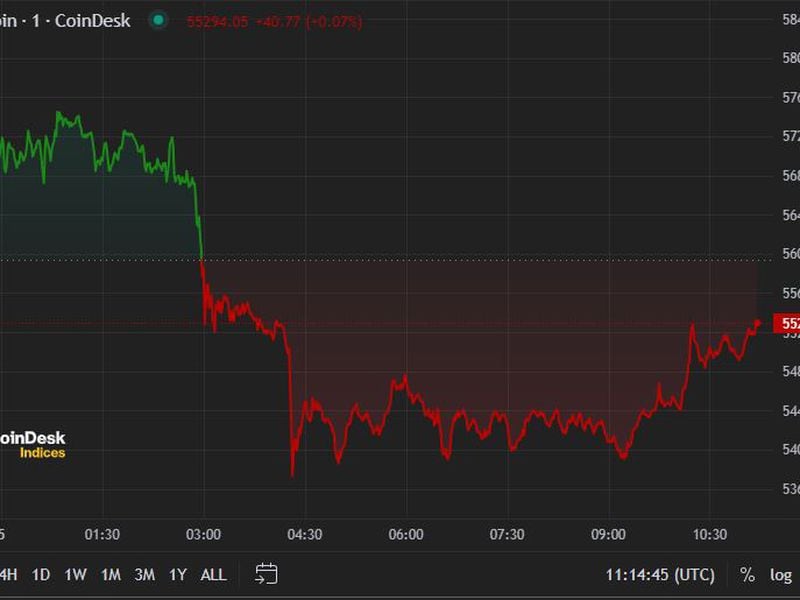This article originally appeared in First Mover, CoinDesk’s daily newsletter, putting the latest moves in crypto markets in context. Subscribe to get it in your inbox every day.
Bitcoin slumped to the lowest since the end of February as Mt. Gox moved a sizeable amount of BTC to a new wallet, potentially preparing for creditor payments. BTC fell to as low as $53,6000 but has subsequently rebounded to just over $55,000, a drop of 4.75% in the last 24 hours. The broader digital asset market, as measured by the CoinDesk 20 Index (CD20), slid around 6.85%. Impending Mt. Gox repayments include 140,000 BTC ($7.3 billion). There have been concerns that creditors will sell their coins immediately on receipt, creating mass selling pressure in the market.
Major altcoins suffered heavy losses as part of the slump, with ether and dogecoin among the worst affected. ETH has dropped 7.5% while DOGE is down almost 11%. Data from Coinalyze shows that over $580 million worth of bullish bets were liquidated. The largest single liquidation order was on Binance – an ETH trade valued at $18.4 million. Meanwhile, open interest – or the number of unsettled futures bets – dropped 12%, indicating money was leaving the market. Liquidations occur when an exchange forcibly closes a trader’s leveraged position due to a partial or total loss of the trader’s initial margin. It happens when a trader cannot meet the margin requirements for a leveraged position.
Only five mining rigs were profitable for their operators as bitcoin slumped to $54,000 this week, creating a scenario that could mark a “local bottom.” “At a rate of $0.08/kWh, ASICs less efficient than 23 W/T operate at a loss,” mining giant F2Pool said Friday. A kWh, or kilowatt-hour, measures the energy usage of an electrical device or load. F2Pool’s graph shows four of Antminer’s various rigs and one Avalon rig that are profitable as long as prices are above $53,100. All other miners now cost more to run than the rewards received by operators.
The chart shows the U.S. spot bitcoin ETFs’ flows since they commenced trading in January with the BTC price overlaid on top.
The initial run of almost constant inflows up until early March coincided with continuous surges in bitcoin’s price.
Since then, however, ETF flows have had markedly less significant effect.
Source: Coinglass
– Jamie Crawley

![[Action required] Your RSS.app Trial has Expired.](https://8v.com/info/wp-content/uploads/2026/01/rss-app-cfAqZL-75x75.png)









![[Action required] Your RSS.app Trial has Expired.](https://8v.com/info/wp-content/uploads/2026/01/rss-app-cfAqZL-350x250.png)










